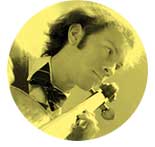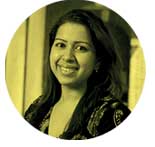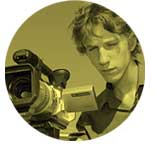Every year, about 15 freshmen arrive at Johns Hopkins as Woodrow Wilson Fellows. They spend the next four years, in addition to classes and extracurricular and jobs, engaging in independent and self-directed research projects that often take them across the globe, into lifelong relationships with mentors and partners, and deep into their own passions. They emerge with confidence, skills, networks, and friends to last a lifetime.
Established in 1999, the Woodrow Wilson Undergraduate Research Fellowship Program provides up to $10,000 to each fellow to be used on research costs. Fellows, working closely with faculty members, may focus on one project or several, in one area of study or more. Applicants are selected on academic merit and the strength of their proposals. The group—which also includes about 10 additional fellows each year selected as rising sophomores—meets regularly for networking, informational sessions, and to explore places of interest in Baltimore and beyond. These instant peer groups become a source of support, constructive criticism, and collegiality, as fellows learn together to turn setbacks into opportunities and to navigate competitive professional situations with the confidence born of experience. One fellow says the message of being chosen was like being told, “We picked you for a reason; go be creative.” As seniors, fellows publicly present their work.
But then what? Where do they go, and how does the fellowship experience echo across their professional and personal lives? Six former fellows share their journeys and insights.

A croaking chorus
Nicole Angeli ’09
Camping deep in the Australian rainforest, spending her nights listening to frogs, Nicole Angeli suddenly knew she was onto something. “I realized, ‘Wow, you could do this as a job,'” she remembers, describing how she’d used part of her fellowship to answer an ad placed by the University of Newcastle seeking volunteers to spend a month monitoring frog calls and behavior.
Realizing she would rather conduct research in the field than in a lab, Angeli spent a semester abroad with Tanzania’s first herpetologist, studying the factors causing frog populations to decline, and that experience truly set her career into motion. Now a pre-doctoral fellow at the Smithsonian Institution’s National Museum of Natural History while also completing a PhD in wildlife and fisheries science at Texas A&M University, she uses population modeling to explore why some species of ground lizard adapt and thrive in the face of threats like climate change and invasive species, while others go extinct. “In the future, we may be able to look at any group, and predict which will persist and which will not,” Angeli explains.
Without the fellowship, she says she never would have delved into ecology or found her way into conservation biology. Even now, when applying for grants or planning publications in a competitive world, Angeli draws on the confidence she gained when she realized someone believed she had what it takes to use such funds wisely and responsibly. “When you know your peers and colleagues have confidence in you, that means something,” Angeli says.

To Bach and back
Ben Swartz ’12
Turns out, classical musicians have been playing bad cover versions of Bach for a hundred years.
Specifically, the original manuscripts of the 18th-century composer’s “Cello Suites” had been lost until cellist Pablo Casals rediscovered their closest facsimile—Bach’s wife’s copy—in the early 1900s. As cellists began performing the new finds, they layered in their 20th-century style: operatically wide vibrato and slurred runs of notes.
Ben Swartz wanted to know how Bach had intended the pieces to sound—but in the absence of original recordings, some detective work was required. So Swartz, a Hopkins-Peabody double-degree student in history and cello, used his fellowship to live in Amsterdam for nine months, researching old treatises on how to perform the music of the times, playing period instruments with strings of sheep gut instead of steel, and studying with cellists Anner Bylsma and Pieter Wispelwey.
“I was looking at the 18th-century way of playing 18th-century pieces—sort of new ground in historical musicology,” Swartz says. His research focused on the influence of rhetoric and metrical hierarchy on Bach’s construction; it was much more closely connected to language and to dance patterns—with their subtleties, variations, and asymmetries—than the homogeneity of sound and rhythm popular later on.
After Hopkins, Swartz earned a postgraduate degree at London’s Royal Academy of Music in cello and historical performance. Today, he tours with Sound Energy, a trio performing the music of living composers, and with Les Enfants d’Orphée, which performs French Baroque opera. He also teaches at Boston Center for the Arts, where he passes along the rare expertise his fellowship gave him in what is known as historically informed performance practice.
For Swartz, one of the fellowship’s most life-changing acts was enabling him to find a way to marry the day-to-day, practical aspects of life as a musician with the historical aspects of his passion.
 Part of something bigger
Part of something bigger
Kurt Herzer ’09
There were some grumbles when Kurt Herzer’s fellowship mentor—Peter Pronovost, MD, director of the School of Medicine’s Armstrong Institute for Patient Safety and Quality—recommended sending Herzer to the United Kingdom in 2007 as the Hopkins representative on a joint data analysis project. Herzer was just an undergrad, after all—a public health major who was developing text mining and natural language approaches to extract information from 12,000 data points associated with airway-related patient safety events in the U.K. But Pronovost prevailed, and Herzer used his fellowship to set out for meetings with hospital executives and academic risk assessment management leaders, gathering information to help the Hopkins team support the U.K.’s efforts to target resources toward improved patient safety.
“My role was not just my own experience, but part of something much bigger.”
Likewise, Herzer says, his fellowship experience made his life bigger. Conducting intensive research, along with the mentors it provided, helped land him in Hopkins’ MD-PhD Medical Scientist Training Program, where he’s completed his PhD in health policy and management and is starting his third year of med school. That came after a summer in the federal Office of Health Reform, and earning a master’s in social policy and intervention at Oxford. One of many possible next steps involves seeking ways to use the data amassed by wearable devices like Fitbit to get people to change their health behaviors.
Herzer, who is legally blind and advocates for improving access for students with disabilities to attend medical school, calls his fellowship experience “the mechanism that led to my intellectual development.”
 Egyptian exploration
Egyptian exploration
Veronica Jordan-Davis ’12
Since early childhood, Veronica Jordan-Davis could not get enough of ancient Egypt. The architecture! The science! But what she really wondered about were the day-to-day lives and loves of the human beings behind those accomplishments. “Having friends and family is ultimately the most important part of life. But that’s not in the literature,” she says.
So the public health and Near Eastern studies double major used her fellowship to spend two summers visiting museums, curators, and Egyptologists in Europe and the U.S. to investigate how ancient Egyptians expressed intimacy in fiction, poetry, architecture, and art. She found that most couples in early Egyptian history were portrayed formally, the husband always tall and powerful. But as the centuries passed, she noticed a more intimate depiction—especially between Pharaoh Akhenaten and his wife, Nefertiti, who were shown kissing; their children sitting on their laps; the family laughing and eating together. Jordan-Davis hypothesized that social, political, and economic disruption during the Amarna period—when polytheism shifted to monotheism and the capital city changed location—sparked changes in how the monarch wanted to be perceived, seeking more connection between the royal family and the people.
Along with her theory, Jordan-Davis brought back a new sense of independence. Having managed a four-year research project and a solo trip abroad, she felt prepared to tackle anything. She’d learned to take the long-term view, she says, to plan her life and her tasks more efficiently. So it wasn’t too much of a stretch to live in Seoul the summer after graduation to work with the World Health Organization, and Yale Law School didn’t intimidate her.
Now practicing intellectual property law at Simpson Thacher & Bartlett LLP in New York, and spearheading the formation of a public health nonprofit organization, she’s still weaving her passions together. Her eye is on international public health advocacy, but she can also imagine practicing antiquities law, or litigating for a museum.
 On the road to help women
On the road to help women
Neha Deshpande ’10
To describe someone as “driven” is usually to draw attention to the goal, the destination. For the indisputably driven Neha Deshpande, the journey itself has been filled with transformations as she grows into a physician caring for vulnerable women.
A biology major and French cultural studies minor while at Hopkins, Deshpande used her fellowship to conduct research at the government-funded King Edward Memorial Hospital in Pune, India. She found severe poverty and families who fled after giving birth to baby girls whose future dowries they would be unable to pay. But she also found better health care prevention practices than those in the U.S.: Lower rates of substance abuse and higher rates of breastfeeding and kangaroo care (holding an infant skin-to-skin on a mother’s bare chest) made for comparably healthy babies. “In order to improve infant outcomes, you have to start at the level of the mom,” observed Deshpande, who brought some of the practices back to Baltimore. “Providers can really make a difference through patient education and preventive care.”
Wanting to leave something of her fellowship experience for other women at Hopkins, Deshpande founded the Women’s Pre-Health Leadership Society to help students plug into the kind of resources and mentors her fellowship afforded her. At Harvard Medical School, she helped write a women’s sexual health curriculum for the nonprofit Pasand—which educates teenage girls in India about women’s health issues and wellness—and led a student group that brought comprehensive sex education to more than 200 boys and girls in underserved Boston communities.
Now a second-year ob-gyn resident at the Hospital of the University of Pennsylvania, Deshpande still frames research inquiry the way she learned during sessions for fellows, looking for patterns in problems and identifying factors that can be improved.
 A novel career path
A novel career path
Kristopher Jansma ’03
Looking back, Kris Jansma realizes how telling it is that he spent two years writing the screenplay for his fellowship project, and just two weeks filming it. “It said lots about where my priorities were,” says the Writing Seminars major, who entered Hopkins torn between focusing on fiction and screenwriting.
Mindful of the heft of the funds the fellowship entrusted to him and wanting his project’s ambition to match, he figured a movie would make better use of the money than writing a novel—which he’d also considered. So he bought a camera, a computer for editing, and DVDs and books to teach himself how to structure a screenplay. Friends from a Hopkins theater group served as the film’s cast; the plot involved the 2:37 a.m. convergence of disparate storylines on a college campus.
Fast forward a decade, and he found himself in familiar territory while writing his second novel—Why We Came to the City—about five characters over a period of several years. “I first started figuring out in the screenplay how to intertwine stories, how to balance them, how to structure them, and how to make sure everybody gets equal time and the stories really come together at a point,” Jansma says.
Since Hopkins, Jansma has earned an MFA in fiction from Columbia University; published his first novel, The Unchangeable Spots of Leopards; and won the 2014 Sherwood Anderson Fiction Award. He is now an assistant professor of creative writing at SUNY New Paltz and is working on his third novel.
Pacing himself through an ambitious, long-term project as an undergrad left Jansma with an enduring sense of competence, one that saw him through multiple attempts before completing his first novel.
“The fellowship really gave me not just confidence coming in, but motivation to reach for something kind of outrageous,” he says. ■


 Part of something bigger
Part of something bigger Egyptian exploration
Egyptian exploration On the road to help women
On the road to help women A novel career path
A novel career path